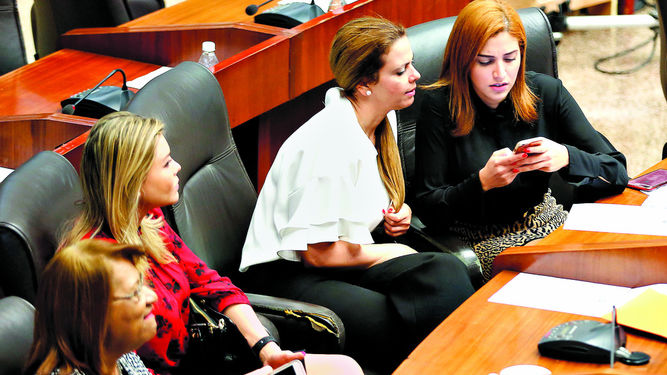Attendance, dress and conduct reforms for deputies

MODIFICATIONS to the law governing conduct by Panama lawmakers include a dress code and pay stoppage for no-shows at parliamentary sessions.
Social networks are to be used appropriately, insults are not made to colleagues in the legislative area or outside it and salary discounts are applied for unjustified absences are some of the aspects included in the draft bill which proposes to Changes to Law 33 of 2005, which governs the Code of Ethics and Honor. It was presented by the president of the National Assembly, Yanibel Ábrego . It proposes that deputies and officials of the Legislative must wear formal clothing during plenary sessions and permanent commissions.
If the draft bill becomes law, the deputies will not be able to personalize discussions with their colleagues or with other citizens in the social networks, nor in the plenary session and the commissions.
“It is incompatible with the rights of deputies to disrespect colleagues, the staff of the institution and the general public during interventions in the period of incidents, in the presentation of preliminary projects, either [through] teasing, threats, insults and attacks “,says the proposal, which also includes oral and written warnings in case the deputies violate this provision once or twice. If a third violation occurs, it is proposed to suspend the right to speak of the deputy in the plenary session and in the commissions for a month.
The sanctions would be made public and appear on the website of the National Assembly. For sanctions to be applied, the affected deputy must file a complaint with the Credentials Commission, which will have five days to make a decision. If this is not done, the document states, “the plenary session is empowered to immediately restructure the commission.”
Absences
Unjustified absences, for which many deputies have gained notoriety would be handled by the Assembly’s board, based on a monthly report that the General Secretariat would provide. According to the proposal, the directive would order the discount at the rate of “one day of pay ” for each absence to the full plenary or commissions.
Regarding clothing, the preliminary draft states that to enter the legislative area men “will wear a jacket, dress shirt, tie and long pants, preferably in dark colors”. Women would be expected to wear a two or three piece “tailor-style suit, , without cleavage preferably in dark colors with skirt or dress at least knee height or long pants
Representatives of indigenous peoples, may wear indigenous clothing.
Ábrego’s proposal arose in the middle of the disputes over control of the Commission of the Credentials Commission, is currently in a legal limbo. During the discussion personal insults were exchanged, in the Assembly and on social media.





